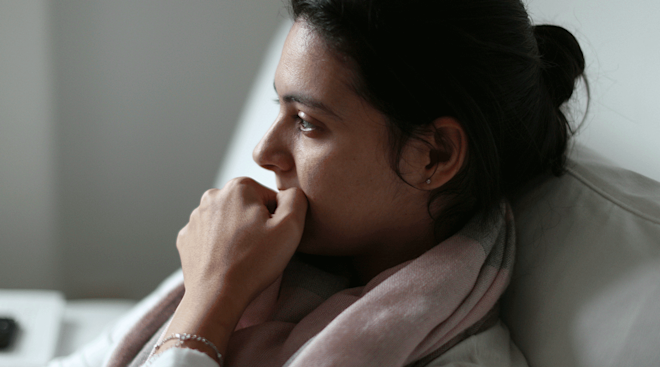Who hasn’t ever had anxiety? Problems at work or at home can often lead to anxiety attacks from the stress of contemporary life. In fact, according to the psychiatrist and professor at the Complutense University, Inés López-Ibor, about 30 percent of the Spanish population has suffered or will suffer from an anxiety disorder throughout their life.
An anxiety attack is an episode that usually arises unexpectedly and is often the result of an accumulation of emotions. Increasingly long workdays, job instability, or a lack of social relationships and support are some of the situations that can generate a certain level of anxiety. How can we detect an anxiety attack? These are the main symptoms, according to Inés López-Ibor:
Excessive concern
One of the most common symptoms of an anxiety disorder is excessive concern. This concern needs to be serious and intrusive and affect the ability to concentrate and perform, not only daily tasks, but also a wide range of events. In addition, it appears automatically without us practically realizing it, rapidly escalating the level of concern.
Feelings of agitation, restlessness, and impatience
When someone feels anxious, part of their sympathetic nervous system is enhanced. This triggers effects all over the body, including: accelerated pulse, sweaty palms, shaky hands, and dry mouth.
Fatigue
Becoming easily fatigued in our daily lives can be another potential symptom of generalized anxiety disorder.
Difficulty concentrating
Most people diagnosed with generalized anxiety disorder report difficulty concentrating. Some studies show that anxiety can disrupt functional memory, a type of memory responsible for withholding short-term information.
Irritability
Many of the patients also experience excessive irritability, especially when their anxiety is at its most critical stage. Since anxiety is associated with high agitation and excessive concern, it is not surprising that irritability is a common symptom.
Muscle tension
Muscle tension is strongly linked to anxiety. Muscle tension as such may increase the feeling of anxiety, just as anxiety may lead to greater muscle tension, or the cause of both may lead to a third factor.
Difficulty falling asleep or staying asleep
Sleep disorders are very common among people with anxiety. The very excessive concern about the fact that you are sleeping little and badly is a sufficient condition for the sleep pattern to be altered, which in turn aggravates concern, general fatigue, and difficulty concentrating.
Panic attacks
Fast heart rhythm, sweating, tremors, shortness of breath, chest pressure, nausea, and fear of dying or losing control. A type of anxiety disorder, called panic disorder, is associated with recurrent panic attacks. Panic attacks produce in those who suffer from them a feeling of intense and overwhelming fear that can become incapacitating.
Irrational Fears
Exaggerated fears about specific things, such as enclosed spaces, heights, or suffering some injury, can be a sign of a phobia.
- 5 tricks to feel better after childbirth
- Klerman’s Interpersonal Therapy For Depression
- 5 very common mistakes that make weight loss difficult
